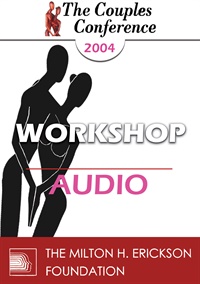CC04 Workshop 08 - Treating Love-Avoidant Men - Terry Real, LICSW
- Average Rating:
- Not yet rated
- Topic Areas:
- Workshops | Love | Avoidant | Addiction
- Categories:
- Couples Conference | Couples Conference 2004 | Pioneers in Couples and Family Therapy
- Faculty:
- Terry Real, LICSW
- Duration:
- 1:48:39
- Format:
- Audio Only
- Original Program Date:
- Mar 27, 2004
- License:
- Never Expires.
Description
Description: This workshop examines the dynamics of love addiction and avoidance, linking them to early experiences of abandonment and enmeshment. It challenges cultural norms around gender, highlighting the common pairing of love-dependent women and love-avoidant men shaped by patriarchy. The speaker emphasizes healthy self-esteem, emotional boundaries, and the need for mature relational development. Practical tools like feelings journals support the shift toward vulnerability, intimacy, and emotionally grounded masculinity.
Syllabus Description: It is said that men are afraid of intimacy. Love-avoidant men don't know what intimacy is; what they fear is subjugation - being drained, used, entrapped. These men most often have histories of enmeshment with either one or both parents. That enmeshment can be positive (e.g. the caretaker} or negative (e.g. the scapegoat), but it always leaves the person with both shame and grandiosity. This workshop will introduce the techniques of teaching such men that the art of surrender requires confrontation, education, trauma work, the restoration of boundaries and the healing of both sides of the self-esteem disorder - shame and grandiosity.
Educational Objectives:
- To describe the trauma that sets up love-avoidance.
- To name the originator of the love-avoidant treatment framework.
*Sessions may be edited for content and to preserve confidentiality*
Credits
Handouts
| Timestamped Transcript (724.9 KB) | 15 Pages | Available after Purchase |
| Timestamped Transcript (783.3 KB) | 17 Pages | Available after Purchase |
| Ericksonian Learning Snapshot (243.9 KB) | 2 Pages | Available after Purchase |
Faculty

Terry Real, LICSW Related Seminars and Products
Terry Real, LICSW, is a nationally recognized family therapist, author, and teacher. He is particularly known for his groundbreaking work on men and male psychology as well as his work on gender and couples; he has been in private practice for over twenty-five years. Terry has appeared often as the relationship expert for Good Morning America and ABC News. His work has been featured in numerous academic articles as well as media venues such as Oprah, 20/20, The Today Show, CNN, The New York Times, The Wall Street Journal, Psychology Today and many others.


